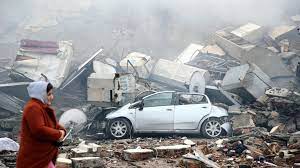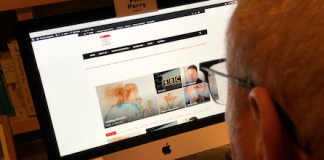- X marks the spot again - 17th February 2026
- Wordy again part three - 16th February 2026
- ‘Lies, damned lies etc…’ - 13th February 2026
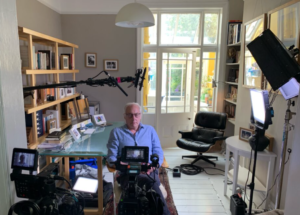
During 23 years with the BBC, and 39 years in journalism (when he was trained to use simple language, avoiding jargon), reporting bad news has always been central for our Editor, Welshman Phil Parry, but nothing compares to the terrible information coming out of Turkey and Syria following the devastating earthquakes there a week ago today.
Previously he has described how he was helped to break into the South Wales Echo office car when he was a cub reporter, recalled his early career as a journalist, the importance of experience in the job, and made clear that the ‘calls’ to emergency services as well as court cases are central to any media operation.
 He has also explored how poorly paid most journalism is when trainee reporters had to live in squalid flats, the vital role of expenses, and about one of his most important stories on the now-scrapped 53 year-old BBC Cymru Wales (BBC CW) TV Current Affairs series, Week In Week Out (WIWO), which won an award even after it was axed, long after his career really took off.
He has also explored how poorly paid most journalism is when trainee reporters had to live in squalid flats, the vital role of expenses, and about one of his most important stories on the now-scrapped 53 year-old BBC Cymru Wales (BBC CW) TV Current Affairs series, Week In Week Out (WIWO), which won an award even after it was axed, long after his career really took off.
Phil has explained too how crucial it is actually to speak to people, the virtue of speed as well as accuracy, why knowledge of ‘history’ is vital, how certain material was removed from TV Current Affairs programmes when secret cameras had to be used, and some of those he has interviewed.
Earlier he disclosed why investigative journalism is needed now more than ever although others have different opinions, and how information from trusted sources is crucial.
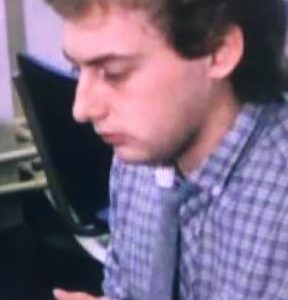
Reporting unwelcome news has long been important in my journalistic career, although NOTHING can be as bad as what we have just heard.
The death toll in the TWO appalling earthquakes which hit Turkey and Syria last week keeps rising, and has far surpassed the World Health Organisation’s (WHO’s) original estimate of 20,000.
The disaster has “overwhelmed everyone”, Dr Michael Ryan, the organisation’s executive director, has said.
As of yesterday the figure stood at more than 33,000 but it is growing all the time and there are likely to be THOUSANDS more deaths.
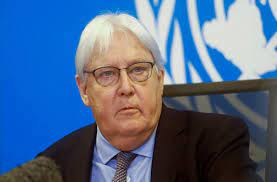
The UN emergency relief co-ordinator, Martin Griffiths, who was in the Turkish province of Kahramanmaras, declared: “We haven’t yet begun to really count the ultimate number of the people who have died, (it’s) the most disastrous earthquake in 100 years”.
Destroyed roads and vast amounts of debris hampered rescue efforts as teams battled freezing temperatures, racing against the clock to save victims within the critical 72 hour timeframe.
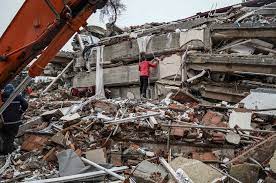
After this so-called golden 72 hours, survival rates fall to up to only 10 per cent, and because the disaster is so massive, it could be far less even than this.
Professor Joanna Faure Walker, head of the Institute for Risk and Disaster Reduction at University College London, said: “Of the deadliest earthquakes in any given year, only two in the last 10 years have been of equivalent magnitude, and four in the previous 10 years”.

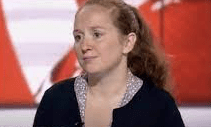
Turkey has borne the brunt of this disaster, but several thousand have also died in Syria.
Poor building construction, and a weak, corrupt, permit system (for which the Turkish President Recep Tayyip Erdogan is heavily responsible), may be partly to blame for the high number of casualties.
Mr Erdogan oversaw a system that did not enforce construction codes, while allowing a real estate boom to develop in earthquake-prone areas.
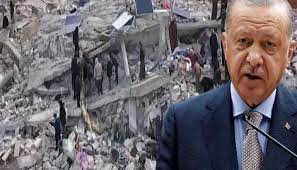
Thousands of buildings were built with inferior materials and methods that did not comply with earthquake-engineering standards.
Experts suggested the problem was largely ignored because it would have been expensive to fix and slow down a sector important to Turkey’s economic growth.
As the BBC has put it: “Anger is growing in Turkey that poor enforcement of regulations contributed to the collapse of many buildings in the recent earthquakes.
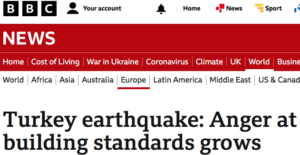 “The BBC has verified examples of recently built blocks that collapsed in the latest disaster.”
“The BBC has verified examples of recently built blocks that collapsed in the latest disaster.”
Now we are told that construction companies in Turkey are to be prosecuted and ‘dozens’ of contractors have been arrested, but perhaps this is actually a smokescreen to cover up the government’s own culpability.
Questions have also been raised over how an ‘earthquake tax’ worth £3.9 billion (88 billion liras) was spent by the Turkish administration, and with this background, at first Mr Erdogan criticised so-called “provocateurs” after survivors complained about his government in the wake of the earthquakes.
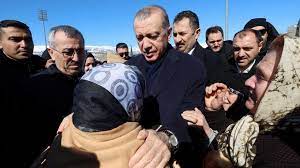
Then he admitted there had been “shortcomings” in his country’s reaction, as he faced growing criticism from families left frustrated by a slow response from rescue teams.
Many Turks have criticised a lack of equipment, expertise and support to help those who were trapped – leaving them helpless as they heard cries from under the rubble.
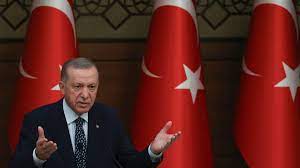
During a visit to Hatay province, where more than 3,300 people died and entire neighbourhoods were flattened, Mr Erdogan said to general bemusement: “It is not possible to be prepared for such a disaster…”.
But many in the crowd remembered a similar earthquake in Izmit in 1999 which killed 18,000 people, and the government has already launched investigations into two journalists who have raised issues like this. Even access to Twitter was restricted after families attacked the response.

Meanwhile, before these controversies, the first information about the number of dead, and a baby which was born under the rubble, were brought out by news reporters. I salute them.
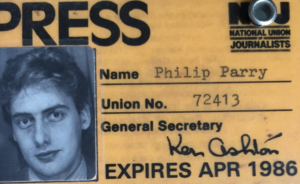 As an investigative journalist, I have NEVER covered such a terrible emergency, although as a daily reporter on the then biggest-selling newspaper produced in Wales, the South Wales Echo (SWE), as well as on BBC Wales Today (WT) in the 1980s, giving details of horrific events on a much smaller scale, has offered a glimpse of terrible incidents elsewhere.
As an investigative journalist, I have NEVER covered such a terrible emergency, although as a daily reporter on the then biggest-selling newspaper produced in Wales, the South Wales Echo (SWE), as well as on BBC Wales Today (WT) in the 1980s, giving details of horrific events on a much smaller scale, has offered a glimpse of terrible incidents elsewhere.
Reporting on awful vehicle crashes was common, and you often had to track down friends or family of the victims, to provide colourful background, or retrieve a picture (known as the ‘pick up pic’), because this was, of course, long before social media.

Court cases, too, were a mainstay of the coverage, and shocking details were given by the barristers here as well.
I remember reporting on a series of child abuse cases, which had been admitted, one after the other, and despite the fact that I was a hardened journalist, even I was becoming queasy by the end of the day!
In Current Affairs (I was the face of BBC Cymru Wales’ [BBC CW] Week In, Week Out [WIWO] for 10 years, and have presented a number of Panorama programmes on BBC One, as well as Public Eye films on BBC Two in London), it was slightly different.
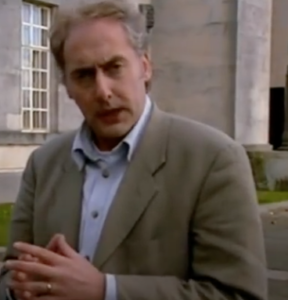
The news was just as bad, but usually I was the one bringing it out.
However, unsavoury details about the antics of a crooked politician, or bent police officer are in another league to what has happened in Turkey and Syria.
News reporters, along with investigative or Current Affairs ones, are starting to publicise the truth behind this ghastly calamity.
More facts will emerge in the months or years to come.
This, I’m afraid, is only the start of it…

The memories of Phil’s decades long award-winning career in journalism (when coverage of horrific episodes were all important) as he was gripped by the rare neurological disease Hereditary Spastic Paraplegia (HSP), have been released in a major book ‘A GOOD STORY’. Order it now!
Publication of another book, however, was refused, because it was to have included names.
 Tomorrow – how a spoof resignation message circulated among staff at a top Welsh university which hit the headlines for all the wrong reasons, and where employees say they are “too frightened to talk” publicly, hours after The Eye first broke the story about its controversial head announcing last month that she was to quit.
Tomorrow – how a spoof resignation message circulated among staff at a top Welsh university which hit the headlines for all the wrong reasons, and where employees say they are “too frightened to talk” publicly, hours after The Eye first broke the story about its controversial head announcing last month that she was to quit.








